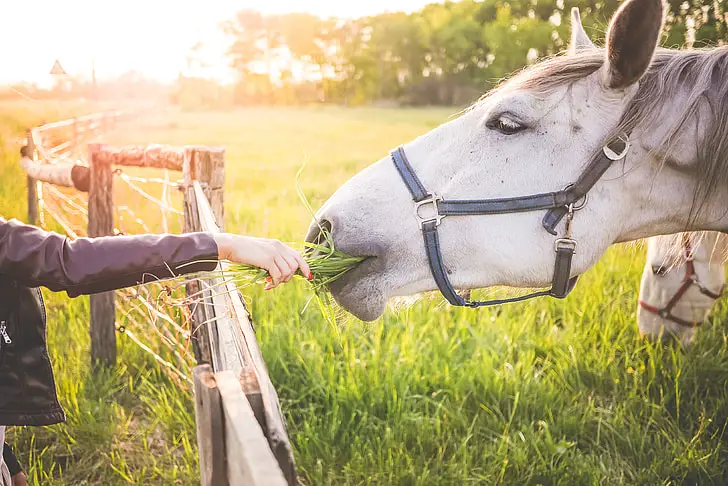Last Updated on June 18, 2020 by Allison Price
Raising your horse brings an emotional connection and companionship along time. Especially raised with proper care, your horse will see you as someone they can depend and trust on. As much as it is wonderful to raise a horse, it takes a lot of love, care, and commitment. Not to mention, money and space! Before thinking about owning a horse, you have to consider a place to take care of them. Here, we will discuss all about taking care of your horses in the United States.
Horses and ponies like to spend a lot of time living out on the grass. When the horses are out, they have the freedom to graze and interact with other horses. They also exhibit natural horse behaviors and attitudes. Some domestic horses are living in barn stalls, and others are staying in pastures or fields.
Below are the lists of 5 perfect places for raising horses in the United States:
Louisville, Kentucky
This is one of the best places in the US for equestrian culture. It is then considered an excellent place to raise horses because limestone is so common in the area. Limestones provide the soil with nutrients. In return, these nutrients support the lush bluegrass on which the horses graze. It’s also home to the world’s famous Kentucky Derby which the Queen of England has attended.
Lexington, Kentucky
This is the home of the Kentucky Horse Park. It has a unique facility dedicated to a variety of equestrian sports. This place has become a mecca for many horse lovers. Its town combines history and southern gentility with a contemporary flair. Endless pastures of the Bluegrass State have been home to Thoroughbreds for centuries. Horses from every other equestrian discipline have joined them.
Ocala, Florida
With a warm sun and a relaxed lifestyle, this makes Ocala a favorite for horse lovers in the winter. It is also chosen by readers for year-round living. With over 1,200 horse farms, the area is a bastion of equestrians of all disciplines. Ocala is the home of southern hospitality for Chester Webber, an Ocala native. Unlike much of Florida, Ocala’s roots are southern. It has magnificent live-oak trees, sweet tea, and warm hospitality.
Woodside, California
Horseback riding is quite an expensive recreational activity. And Woodside happens to be one of the wealthiest small towns in the nation. The community has worked hard to preserve equine-friendly policies. Horse farms and equestrian facilities are then connected to each other. It has an elaborate riding trail system that weaves throughout the area. The mild climate of the bay area allows for comfortable riding throughout the year for all 12 months.
Southern Pines, North Carolina
Southern Pines may be the place for riders looking for a great year-round experience. At least 9 months of safe riding (and sometimes 12 months), no matter what time of year there is a great ride to be had. The terrain is about as suitable for sandy footing and a smooth ride as it could be. For many reasons, the area was then named Horse Country:
- The Carolina Horse Park, with its steeplechase harness track.
- The Sandhills Preserve, which has 900 acres of land a
- And many trails.
Perfect Climate for Raising Horses
Horses withstand temperatures at or below 0 ° F, in the absence of wind and moisture. If horses have access to a shelter, they can tolerate temperatures as low as -40°F.
Most horses are comfortable at temperatures between 18° and 59° F, depending on their hair coat. Most owners are quite aware that horses seem to prefer much cooler temperatures. Horses prefer exercising in 4 to 12 degrees over temperatures and above 20 degrees. They usually liked the 12 to 19-degree zone. For Fahrenheit areas, horses are most comfortable exercising in a 50-60 degree weather.
How Many Acres of Land Does It Need for Raising Horses
A common rule of thumb is 1-1/2 to 2 acres of open managed land per horse. If managed, two acres would provide enough forage in the form of pasture and/or hayfield. But this is variable depending on location.
In the Eastern regions, for a well-managed pasture, 2 acres will support the forage needs of a horse.
In the Southern, Midwestern, and Western regions, two to ten acres will support the forage needs of a horse. This is with a well managed and irrigated pasture.
With dryland pastures that are not irrigated, you need up to 30-38 acres per horse. This is to meet your total needs for forage for all your horses.
What You Need to Consider When Raising Horses
There are many important responsibilities associated with raising a horse. Owning a horse is a long-term commitment. It requires significant time and effort and is expensive. The basic requirements include adequate and appropriate feed, water, shelter, space, and exercise. This includes important health care and treatment of illness or injury.
Here are the basic requirements of caring for horses:
- To keep them in good body condition, horses must have access to a good quality feed. There should be an adequate amount of feed in the form of roughage (pasture, hay, or chaff). A guide to the amounts to feed is one to two kilos per 100kg of bodyweight.
- Clean water must always be available. A dam or self-filling trough is best. Bathtubs, if used, must be then checked daily. Dams and self-filling troughs should be also checked frequently.
- Horses need shelter from extremes of sun, wind, and rain. Trees or a walk-in shed will make a suitable shelter. You can use a waterproof rug to protect the horse from cold weather. Remember to check it daily to ensure it is not rubbing, slipping, or leaking.
- Horses must have enough space to walk and run around unless they have daily exercise. Sick horses may need to be then confined under the directions of a veterinarian.
- Fences must be always kept in good repair to prevent injury and escape. Remove rubbish and weeds regularly to prevent injury to the horse.
- General health care is as follows:
- The dental check-up should be at least once every three to five months.
- Hooves trimming are every six to eight weeks.
- Deworming is every six to eight weeks.
- Horses should have their regular vaccinations.
- Track disease in horses.
- Track body condition.
- Breeding horses is a lot expensive, time-consuming, and requires special facilities. Breeding horses should not be done indiscriminately. It should be only conducted by, or with the advice of, experienced people.


